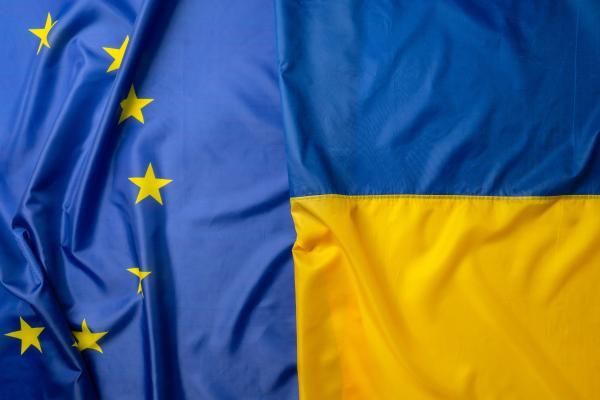
- The first two disbursements have taken place, with further disbursements scheduled for the coming days
- The funds are part of a €668 million immediate financial support package for Ukraine approved on 4 March 2022 by the EIB Board of Directors.
- The EIB Group is working to provide additional financial and technical support for Ukraine and its EU and non-EU neighbours to help them cope with war-related damage and the inflow of refugees.
The European Investment Bank (EIB), the Bank of the European Union, owned by its 27 Member States, made the first two disbursements totalling €129 million to the Government of Ukraine for the most urgent needs. These funds are part of the EIB’s Ukraine Solidarity Urgent Response of which €668 million was approved by the EIB Board of Directors on 4 March. The financing benefits from the EU guarantee under the External Lending Mandate and complements other initiatives announced by EU institutions
Following requests from the Government of Ukraine, further disbursements are scheduled for the coming days.
EIB President Werner Hoyer said: “Russia’s brutal and illegal invasion of Ukraine has driven more than 2 million people out of the country and triggered a humanitarian and security emergency. The European Investment Bank is delivering rapid financial support to Ukraine to assist with urgent financing needs. Speed and flexibility are key here and we, as the EU bank, will continue to work in close coordination with the Government of Ukraine to ensure that Ukrainian people may benefit from EIB support when they need it most. We are working hard to provide more support — I envisage a package for a total of €2 billion from the EIB — for critical infrastructure and to rebuild what the Russian army has knocked down, in a free and independent Ukraine. We also hope to announce in the coming days further financing to support Ukraine’s neighbours in and outside the European Union as they offer shelter and protection to refugees fleeing war.”
President Hoyer added: “Today as chair of the group of multilateral development banks, I convened a meeting of the heads of these banks to ensure that we pool our expertise and coordinate our financial efforts to support Ukraine in its hour of need.”
Serhii Marchenko, Minister of Finance of Ukraine, said: “We are grateful to the European Investment Bank for close cooperation and efficient use of existing mechanisms to support Ukraine in these difficult times. We appreciate the swift actions, which allowed us to get essential funds for meeting the country’s urgent financial needs. We also hope to discuss new projects aimed at rebuilding economic and social infrastructure in the country in the near future.”
The funds approved and disbursed so far have now reached the Ukrainian authorities to help them meet their most immediate and urgent financial needs. The finance stems from two EIB loans approved before Russia’s aggression against Ukraine, to support the country’s small and medium-sized enterprises and agricultural sector.
Under its Solidarity Package for Ukraine, the EIB is now pursuing further initiatives, including:
1. Financing critical infrastructure needs in Ukraine by repurposing infrastructure project commitments to meet immediate investment and reconstruction needs. The financing will cover transport, energy, urban development and digital investment. The money can be made available very quickly, as soon as the Ukrainian authorities sign off on amendments to existing contracts.
2. Helping to rebuild whatever the Russian army destroys by financing new critical economic and social infrastructure needed as soon as a free and independent Ukraine is re-established after the war. For this, the EIB will use its experience with the Ukraine Early Recovery Programme that has so far supported, after Russian aggression in 2014, reconstruction in 238 municipal and social infrastructure projects involving schools and kindergartens, hospitals and social housing.
In parallel, EIB experts are currently assessing the needs of countries in Ukraine’s neighbourhood and within the European Union that are welcoming refugees from Ukraine, or are affected by the war in other ways. The EIB is working with our partner EU institutions, as well as national and local authorities, national promotional institutions and other counterparties to make financial and technical assistance urgently available to these countries and regions. To provide the funds, the EIB could rapidly reprioritise existing, but as yet undisbursed loans to regions and municipalities, or approve new refugee-related operations, financing up to 100% of the total instead of the usual maximum of 50%.